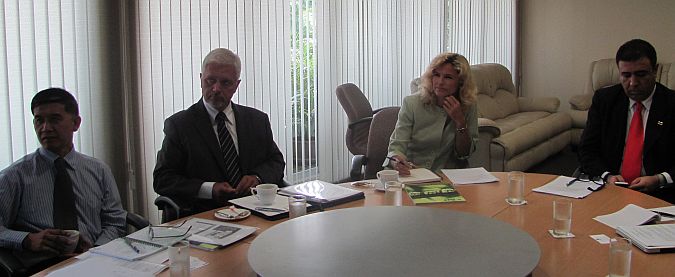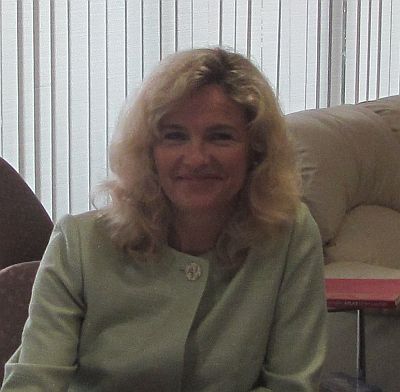Accompanied by Mr. Erik Svedahl, Minister Counsellor and Mr. Moonstan
Chatri, Senior Programme Officer of the Royal Norwegian Embassy, the
Ambassador stated that higher education, technology and climate change
are priority areas for Norway. “Since the situation has changed ever
since the establishment of AIT, I am keen to know how AIT views its
role in the future,” H.E. Ms. Katja said. She remarked that her visit
was intended to acquire more information about AIT.
Prof. Said Irandoust, President, AIT, while welcoming the delegation
from the embassy of Norway, stated that he was “inspired by their
presence.” AIT has established a very strong brand name ever since its
inception, Prof. Irandoust said. AIT is a “neutral platform” which
facilitates regional cooperation, while fulfilling its mission of
providing education and capacity building, he added. AIT’s neutrality
helps it investigate transboundary issues like energy, environment and
climate change more effectively, he said.
The AIT President outlined the new funding model of AIT, and its
ambition of establishing satellite campuses in different countries. He
mentioned AIT’s internationality and its focus on addressing issues by
using a multi- disciplinary approach.
The delegation was presented an overview of Norway-AIT cooperation by
Dr. Othniel Mintang Yila, Program Coordinator, External Relations and
Communications Office (ERCO); while Mr. Hans Joakim Guttman,
Coordinator, Wetland Alliance Programme (WAP) detailed the work done by
WAP and Poverty Reduction and Agricultural Management (PRAM) which is
jointly delivered through AIT. Mr. Olivier Drean, Coordinator, French
Cooperation, and Advisor to Administration; Ms. Kulvimol Wasuntiwongse,
Executive Secretary to the Board; and Mr. Karma Rana, Institute
Secretary, AIT also participated in the meeting.

(From left to right) Mr. Moonstan
Chatri, Mr. Erik Svedahl, Her Excellency Ms. Katja Christina Nordgaard
and Prof. Said Irandoust.

